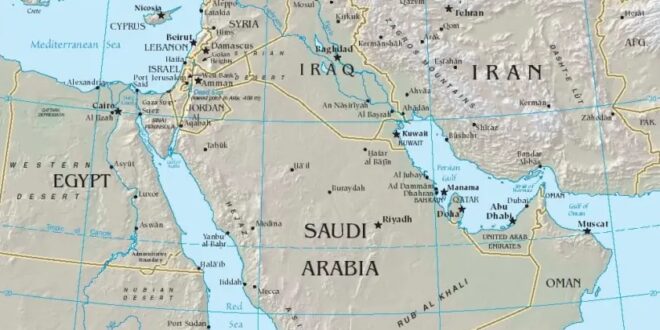The United States is no longer the undisputed hegemon in the Middle East, while Russia is once again a military and diplomatic actor in the region.
With a change of administration in Washington and with heightened US-Russian tensions on the global level, Russia’s role in the Middle East could turn into a strategic challenge and an urgent concern to both Israel and the United States, in sensitive areas such as Syria and Iran and in the cyber and technological domains, a new report argues.
According to the report, written by the Woodrow Wilson Center’s Kennan Institute and the Institute for Policy and State at IDC Herzliya, The United States is no longer the undisputed hegemon in the Middle East, while Russia is once again a military and diplomatic actor in the region.
“Since well before 2015, when it intervened in the Syrian civil war, Russia has been seeking additional outlets for its military and economic influence in the Middle East,” it reads. “Russia is now a prominent factor in Syria and Libya, a partner of Iran, a partner with ambitions in Egypt, and an interlocutor with the Gulf states (especially the United Arab Emirates and Saudi Arabia), Israel, the Afghan government, the Taliban, and the Palestinians, among many other political entities.”
According to the report, “Russia plays multiple sides against each other within countries experiencing internal conflict, using these conflicts as a wedge to deepen its regional influence.” Yet, it says, Moscow is far from being able to establish a regional order of its own design.
So far, Russia has not fundamentally challenged US and Israeli cooperation in the region, the report says, “although the widening scope of Russia’s activities certainly affects the interests of Israel and the United States.”
Among the contributors of the report are Maj.-Gen. (Res.) Amos Gilead from the IDC; Matthew Rojansky, director of the Kennan Institute; and Ambassador Janes Jeffrey, who previously served as the Special Representative for Syria Engagement and the Special Envoy to the Global Coalition to Defeat ISIS.
“For the United States, a Russian presence in the Middle East is not intolerable at current levels,” the text reads. “It does not necessarily run counter to core US interests in the region, but it does complicate the realization of these interests and is detrimental to the degree that Russian policy is motivated by the goal of limiting US influence and damaging US prestige.”
For Israel, however, “Russia is a high-priority national security challenge,” the report notes. “Russia imposes a set of operational and strategic concerns stemming from the potential impediment to Israel’s freedom of operations in Syria, and Moscow’s strategic relations and cooperation with Iran.
“Engagement with Russia allows Israel achievements in degrading Iranian military capabilities and entrenchment in Syria, with limited Russian disruption of its operations,” it said. “Israel needs to maintain its engagement with Russia in order to secure these paramount objectives.”
The report also notes that Russia will not drive a wedge between the United States and Israel, but nevertheless, “the likelihood of great power competition in the Middle East going forward will require creativity and enhanced consultation on the broader Middle East from Israel and the United States.”
The report calls for a joint US-Israeli approach that would link the situation in the Middle East “with the growing role of Russia and China globally.”
“The United States and Israel should elevate Russia to a strategic priority in their bilateral relationship and increase official consultation and coordination on containing Russian challenges to both countries, in the Middle East and in the cyber and technological domains,” it says.
It also argues that the United States and Israel could consider a special role for Russia in Syria “as a means of working with Moscow to limit Iran’s presence in the country.”
 Eurasia Press & News
Eurasia Press & News




